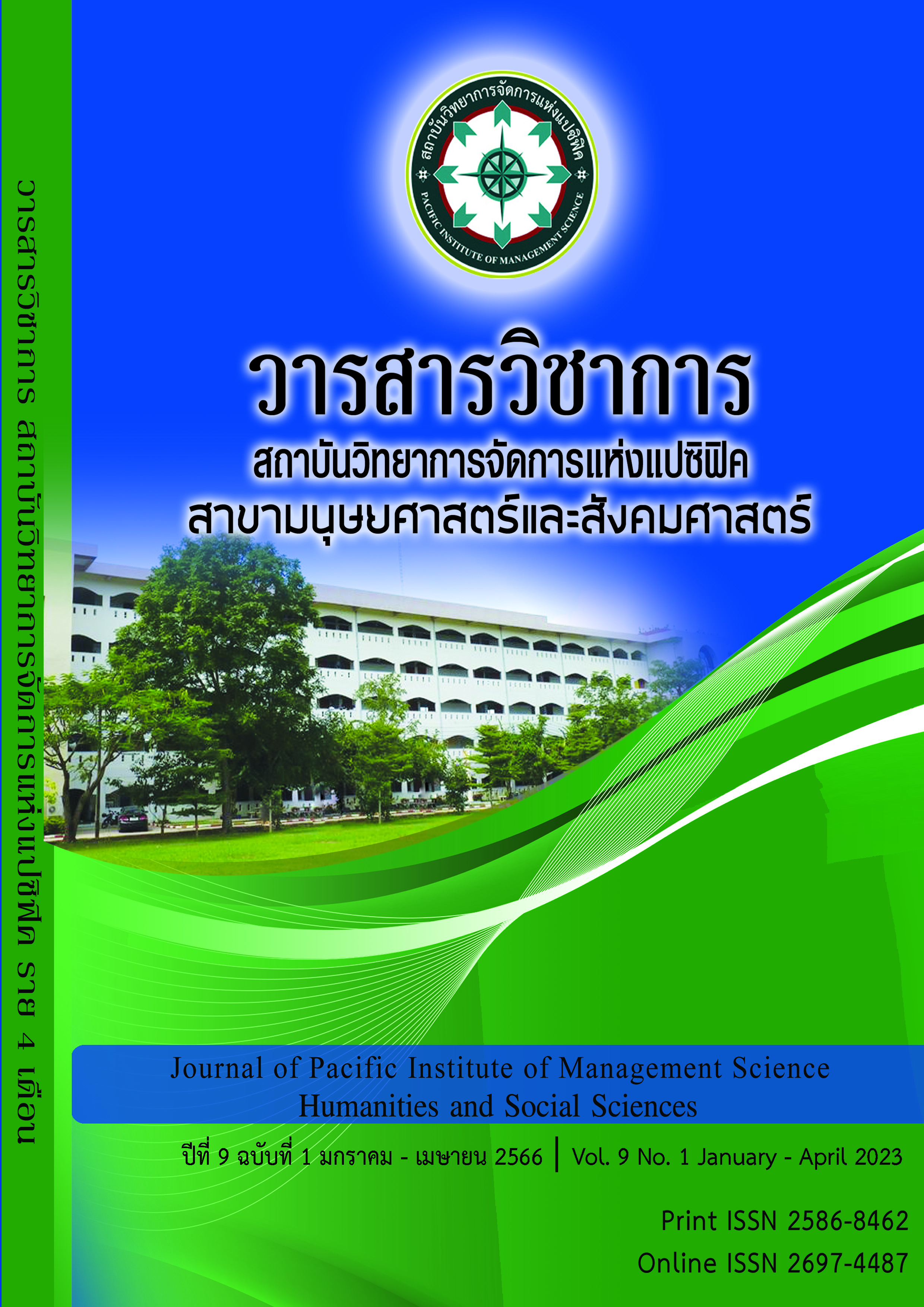Entrepreneurs’ Qualifications and Business Success: A Case of Thai MSMEs Entrepreneurs in Trade Sector
Keywords:
Entrepreneurs, qualifications, trade sector, success, Thai MSMEs.Abstract
MSMEs played vital roles in the modern economies of many countries, particularly in Thailand. The MSMEs are known as major sources of employment, local resources maximizers, and local’s economy drivers. The objectives of this study were to investigate and analyze key success factors of the MSMEs’ entrepreneurs who are successfully established and maintain their business focusing on their qualifications. The study also aims to investigate the influence of the external factors on the MSMEs’ success. The study was quantitative research using survey questionnaire to conducts data from 400 MSMEs entrepreneurs in trading sector who their businesses were at least 3 years from the establishments. Descriptive statistics were applied to describe the respondents’ demographic profile and situation analysis whereas inferential statistics were applied to analyze the variables, test the relationships, and to test research hypothesis at statistically significant .05.
The research results revealed that influence on the success of their business management rank from financial support, knowledge in website/platform, ability in product presentations, networks building ability, and business background, and resources respectively. According to external factors, the results revealed that economic was found to be the most important factor for the success of MSMEs business operation, followed by technology factors which this study found that the purchasing power influence the business expansion, the entrepreneurs knowledge in contemporary social and cultural factors influence the MSMEs’ business success, and political factors which the study found the MSMEs’ participants concern most is the assistance from the Thai government’s officials that affiliated to trade promotions influenced on their success, finally, legal factors had positive effect pm the success of the entrepreneurs respectively.
References
Chuthamas Chittithaworn, Md. Aminul Islam, Thiyada Keawchana, & Dayang Hasliza Muhd
Yusuf. (2011). Factors Affecting Business Success of Small & Medium Enterprises (SMEs) in Thailand. Asian Social Science, 7(5); May 2011.
Falk, M., Gavin, M., Siedschlag, I., Hagsten, E., Vessel, J., & Mirza, D. (2014). Drivers of SMEs Internationalization: Implications for Firm Growth and Competitiveness: Background Study for Chapter 3, European Competitiveness Report 2014: Helping Firms Grow 2014.’swd (2014) 277 final. European Commission, Brussels.
Ibrahim, M. I., & Mustapha, B. (2019). Determinants of Small and Medium Enterprises Performance in Nigeria: The Role of Government Support Policy. International Journal of Business and Economics Research, 8(2), 41.
Karpak, B., Topcu, I. (2011). Small medium manufacturing enterprises in Turkey: An analytic network process framework for prioritizing factors affecting success. International Journal of Production Economics, 125 (2), 60- 70.
Kunday, Ö., & Şengüler, E. P. (2015). A study on factors affecting the internationalization process of small and medium enterprises (SMEs). Procedia-Social and Behavioral Sciences, 195, 972-981.
Kunkongkaphan, P. (2014). Impact of Globalization on Thai Small and Medium Enterprises: A Study of the Clothing and Textile Industry, Doctoral dissertation, Victoria University. Retrieved from: http://vuir.vu.edu.au/25357/1/Pakinee%20Kunkongkaphan.pdf.
Lampadarios, E. (2017). Critical Business Environment Factors for SMEs in the UK Chemical Distribution Industry: A Qualitative Perspective. Journal of Research in Business Economics and Management, 8 (1). ISSN 2395-2210.
Likert, R. (1932). "A Technique for the Measurement of Attitudes". Archives of Psychology 140: 1–55.
O'Cass, A., & Weerawardena, J. (2009). Examining the role of international entrepreneurship, innovation and international market performance in SME internationalization. European Journal of Marketing, 43(11/12), 1325-1348.
OECD (2006), “Removing barriers to SME access to international markets”, Final background report of the OECD-APEC joint project, 6-8 November, Athens, Greece.
Office of Small and Medium Enterprises Promotion (2017). SME Promotion Plan No. 4 (B.E. 2560 - 2021). Office of Small and Medium Enterprises Promotion. Retrieved from: http://www.ubu.ac.th/web/files_up/03f2017052114185579.pdf
OSMEP. (2020). MSME profile. Retrieved from https://www.sme.go.th/en/page.php?modulekey=365
OSMEP. (2020). White Paper on MSME 2019. Retrieved from: https://www.sme.go.th/upload/mod_download/download-20201005123037.pdf
Rahman, M., Uddin, M., & Lodorfos, G. (2017). Barriers to enter into foreign markets: Evidence from SMEs in emerging market. International Marketing Review, 34(1), 68-86.
Rakariyatham, A., & Ploysri, S. (2016). A Development of a Causal Model towards the Success in International Business Engagement of Small and Medium-sized Enterprises in Upper Northern Thailand. Journal of Accounting and Management Mahasarakham University, 8(2): 12-21.
Rashid, A., & Waqar, S. M. (2017). Exchange rate fluctuations, firm size, and export behavior: An empirical investigation. Small Business Economics, 49(3), 609-625.
Simpson, M., Padmore, J., & Newman, N. (2012). Towards a new model of success and performance in SMEs. International Journal of Entrepreneurial Behaviour and Research, 18 (3), 264-285. http://dx.doi.org/10.1108/13552551211227675.
Smallbone, D., Welter, F., Voytovich, A., & Egorov, I. (2010). Government and entrepreneurship in transition economies: the case of small firms in business services in Ukraine. Service Industries Journal, 30 (5), 655-670. http://dx.doi.org/10.1080/02642060802253876.
SMEs Center University of the Thai Chamber of Commerce. (2018). Smart SMEs driving the power of Thailand 4.0. Retrieved from THAI SMART CENTER: https://tsc.thaichamber.org/th/news/view/46
SMEs. (2023). MSMEs white paper. Retrieved from https://www.sme.go.th/upload/mod_download/download-20201014121830.pdf
The Organization for Economic Co-operation and Development. (2017). Enhancing the Contributions of SMEs in a Global and Digitalized Economy. Paris: OECD.
The Revenue Department (22 October 2019). The Revenue Department.
Tooksoon, P., Mongkhonkili, N., & Imaob, M. (2016). The Effects of Marketing Capabilities and Business Networks to Export Success of Thai’s Entrepreneurs Sustaining for ASEAN Economic Community (AEC). Veridian E-Journal, Silpakorn University (Humanities, Social Sciences and Arts), 9(1), 439-455. Retrieved from: https://www.tci-thaijo.org/index.php/Veridian-E-Journal/article/view/56494/47030
White Paper on MSME. (2020). Officer of Small and Medium Enterprise Promotion. Retrieved from https://www.sme.go.th/upload/mod_download/download-20201005123037.pdf
Xie, Y. (2019). Essays on Exchange Rates and International Trade: Firms, Products, and Value-added Trade, Doctoral dissertation, Waseda University Tokyo, Japan.
Yamane, Taro. (1973), Statistics: An Introductory Analysis. London: John Weather Hill, Inc.
Downloads
Published
Issue
Section
License
Copyright (c) 2023 Pacific Institute of Management Science

This work is licensed under a Creative Commons Attribution-NonCommercial-NoDerivatives 4.0 International License.
บทความที่ได้รับการตีพิมพ์เป็นลิขสิทธิ์ของ สถาบันวิทยาการจัดการแห่งแปซิฟิค
ข้อความที่ปรากฏในบทความแต่ละเรื่องในวารสารวิชาการเล่มนี้เป็นความคิดเห็นส่วนตัวของผู้เขียนแต่ละท่านไม่เกี่ยวข้องกับสถาบันวิทยาการจัดการแห่งแปซิฟิค และคณาจารย์ท่านอื่นๆในสถาบันฯ แต่อย่างใด ความรับผิดชอบองค์ประกอบทั้งหมดของบทความแต่ละเรื่องเป็นของผู้เขียนแต่ละท่าน หากมีความผิดพลาดใดๆ ผู้เขียนแต่ละท่านจะรับผิดชอบบทความของตนเองแต่ผู้เดียว







